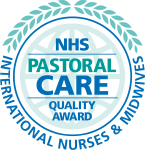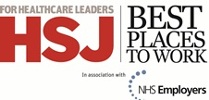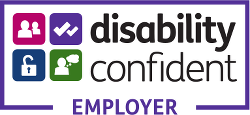Trac proudly powers the recruitment for
Greater Manchester Mental Health NHS Foundation Trust

About
Greater Manchester Mental Health (GMMH) Foundation Trust employs over 7000 members of staff, who deliver services from 122 locations.
We provide inpatient and community-based mental health care for people living in Bolton, the city of Manchester, Salford, Trafford and the borough of Wigan, and a wide range of specialist mental health and substance misuse services across Greater Manchester, the north west of England and beyond.
Greater Manchester is one of the world's most innovative, original and exciting places to live and work. From the beauty of the surrounding countryside to the heart of the vibrant inner city with great shopping, entertainment and dining options.
Wherever you go you will experience a great northern welcome with people famed for their warmth, humour and generosity.
Our people enjoy their work, have opportunities to learn and develop their skills and are encouraged to generate new ideas that improve care for our service users.
Contact
- Address
- Bury New Road
- Prestwich
- Manchester
- M25 3BL
- Contact Number
- 0161 938 5253
Highly Specialist Speech and Language Therapist
Accepting applications until: 30-May-2025 23:59
Vacancy status: Open
Accepting applications until: 30-May-2025 23:59
Key details
Location
- Gwefan
- Secure Children's Homes. Marydale and Barton Moss
- Cyfeiriad
- Blackbrook Road and Barton Moss Road
- Tref
- St Helen's and Salford
- Cod post
- WA11 9RJ
- Major / Minor Region
- Manchester
Contract type & working pattern
- Contract
- Permanent: Split post
- Oriau
- Part time - 30 hours per week
Salary
- Cyflog
- £46,148 - £52,809 per annum
- Cyfnod cyflog
- Yearly
- Gradd
- (Band 7)
Specialty
- Prif leoliad
- Speech and Language Therapist
Trosolwg o'r swydd
The current post is split across Marydale and Barton Moss Secure Children’s Homes and the post holder will be embedded as a senior individual in a health team consisting of mental and physical healthcare professionals.
Marydale Secure Children’s Home is run by Nugent Care and provides secure accommodation with education for young males and females, who have been placed on Welfare Orders. The post holder would be an integral member of the health team, who have been rated as ‘outstanding’ by CQC three years in a row.
Barton Moss is run by Salford Council and provides custodial care with education and healthcare for young males, aged 12 to 18 years. Barton Moss consists of two 6-bedded admission units, and two 6-bedded longer term units.
The young people present with a range of diverse needs including complex trauma, neurodiversity, and common mental health difficulties (e.g., anxiety and depression). These cooccur alongside concerns about risk to themselves and / or others, as well as risk from others.
Each of the homes implements the national SECURE STAIRS framework which affords exciting opportunities for partnership working including consultation, training, supervision and formulation, as well as innovative service development activities. The care is formulation lead and trauma informed.
Advert
The postholder will provide highly specialist Speech and Language Therapy to service users (some of whom may present with very high-risk behaviours) and colleagues, across the two secure settings.
The postholder will be responsible for maintaining evidence based and person-centered clinical practice in line with all local and national standards. They will practice within their own competencies and identify their ongoing continuing professional development needs with their line manager.
The postholder will likely be working as the only Speech and Language Therapist within a particular setting and will be expected to maintain active clinical supervision (including peer supervision) with the wider Speech and Language Therapy team across GMMH and with national peers.
Within these dynamic multi-disciplinary teams, the post holder will work with operational and professional leads to ensure that the Speech and Language Therapy service continues to meet the need of its designated populations.
Gweithio i'n sefydliad
Greater Manchester Mental Health (GMMH) Foundation Trust employs over 7000 members of staff, who deliver services from more than 160 locations.
We provide inpatient and community-based mental health care for people living in Bolton, the city of Manchester, Salford, Trafford and the borough of Wigan, and a wide range of specialist mental health and substance misuse services across Greater Manchester, the north west of England and beyond.
Greater Manchester is one of the world's most innovative, original and exciting places to live and work. From the beauty of the surrounding countryside to the heart of the vibrant inner city with great shopping, entertainment and dining options.
Wherever you go you will experience a great northern welcome with people famed for their warmth, humour and generosity.
Our people enjoy their work, have opportunities to learn and develop their skills and are encouraged to generate new ideas that improve care for our service users.
Swydd-ddisgrifiad a phrif gyfrifoldebau manwl
Professional & Clinical
Adhere to safeguarding policies/procedures.
Be responsible for evidence-based speech and language therapy input comprising assessment, diagnosis and intervention to a highly specialist adolescent mental health caseload.
Provide consultative input around service users’ speech, language and communication needs both within local multi -disciplinary teams and within multi agency professional meetings, providing recommendations to locality teams.
Engage and communicate clearly, respectfully, effectively and compassionately with young people, their families and carers under challenging and emotive circumstances.
Set appropriate treatment aims and objectives in negotiation with the service user, carers and the MDT, with respect to wider clinical priorities.
Guide the MDT in the adaptation of information to service users’ needs, facilitating engagement between service users, their carers and professionals and resolving barriers to communication where possible.
Devise Speech and Language Therapy programmes of care and equip others to implement them, monitoring and revising implementation as appropriate.
Discharge service users when intervention is complete and/or refer service users on to relevant services when appropriate.
Produce, disseminate and update verbal and written reports /recommendations regarding individual assessment, diagnosis and care in a timely manner with adherence to information governance. Reports to be produced in appropriate format for a variety of purposes, (including statutory reports).
Integrate assessment findings into multidisciplinary formulation of the service user’s presenting needs.
Adapt practice to meet service users’ cultural, linguistic, cognitive, physical and mental health needs.
Support service users and carers to express their needs, priorities, concerns and opinions to other professionals and involve advocacy workers as appropriate.
Work with interpreters as necessary.
Work safely adhering to individual risk assessment and risk management plans.
Be familiar with and adhere to relevant legislation, local and national policies/procedures and quality standards and governance.
Plan and deliver specialist speech, language and communication related training where appropriate.
Participate in training and evaluation of students.
Provide and receive peer support.
Deal with complaints sensitively, avoiding escalation where possible.
Service Planning, Development and Delivery
Take a lead role in the development and delivery of clinical services and pathways. This will be directed by and in consultation with the Senior Leadership team.
Manage own workload, balancing patient related demands with other professional responsibilities e.g. CPD, administration, meetings and to ensure priorities remain in accordance with the service as a whole.
Recommend policy changes in own specialist area.
Professional Development, Education, Training and Research
Identify and work towards personal development needs and departmental objectives, set in conjunction with the line manager, as part of the annual personal development.
Attend relevant training to develop and maintain the skills and knowledge required of a Highly Specialist Therapist.
Ensure that all clinical work is underpinned by evidence.
Take responsibility for keeping abreast of professional developments and research relevant to clinical work.
Demonstrate highly specialist knowledge and disseminate information acquired from courses and literature and networking to colleagues within SLT and other professions. This may for example take the form of case study based or clinical topic presentation s .
Design and carry out small research studies and audit projects in own specialist area or to contribute to such projects according to the departmental clinical governance agenda e.g. around waiting times, case note recording, referrals.
Communication, Leadership and Management
Provide clinical leadership within own specialist area.
Form and maintain effectively functioning relationships with partnership organisations and agencies.
Lead by example, displaying the trust values.
Coordinate and supervise the work of small groups of staff such as students, assistants, volunteers and junior colleagues in the delivery of care, where appropriate.
Facilitate the development of others’ problem-solving / negotiation skills within the context of peer support and review.
Provide second opinions to Speech and Language therapy colleagues on request within own area of expertise.
Provide appraisal for a small number of junior staff.
Adhere to trust procedures and policies regarding line management.
Analytical and Judgmental Skills
Assess clinical conditions which may be complex or compounded in nature both directly with the service user and by the gathering of clinically relevant information from a range of professionals and carers.
Use highly specialist clinical reasoning skills to assimilate information, considering cognitive, emotional, environmental, cultural and social issues, to contribute to clinical formulation/differential diagnosis and decide intervention and case management.
Consider the sensory, environmental, social, behavioural aspects of client’s communication and identify appropriately responsive strategies to enhance communication.
Negotiate with service users, carers and professional colleagues around individual case management.
Tailor formal and informal training to the needs of participants and evaluate the content and delivery.
Recognise potential breakdown and conflict when it occurs and seek advice and support to resolve.
Reflect on practice with peers/clinical supervisor and identify own strengths / development needs.
Planning and Organisational Skills
Manage and prioritise a specialist caseload, seeking advice from senior colleagues on complex cases.
Coordinate case management activities with other involved professionals across Health, Education, Social Services or Voluntary Sector.
Be instrumental in setting up additional clinical initiatives, which enhance individual patient management in consultation with Team Leader.
Physical
Sit or stand in for substantial periods of time.
Adhere to local, trust and national requirements around personal safety and the safety of others.
Apply Moving and Handling training knowledge to risk assessment when transporting clinical equipment between sites.
Emotional
Impart potentially distressing and unexpected information of a diagnostic and prognostic nature to service users and carers, in a sensitive and supportive manner.
Respond in a sensitive, calm and transparent manner to the disclosure of potentially distressing information from others while acting in accordance with professional responsibilities (e.g. information sharing and/or safeguarding).
Use available support to care for own wellbeing while providing a caring service to people who have experienced abuse and/or pose a risk to themselves or others.
Mental
Maintain concentration for prolonged periods.
Maintain the cognitive processing of large quantities of information throughout the workday - filtering, prioritising, assimilating, evaluating, concluding and planning in relation to workload requirements.
Be flexible and responsive to a dynamic work environment.
Working Conditions
Engage in sessions and meetings both remotely and in person across a range of sites.
Assess risk alongside colleagues ahead of offsite visits, share risk information with colleagues and adhere to existing risk management plans.
Adhere to infection control and health and safety procedures.
Financial and Physical Resources
Monitor the suitability of the working environment and report significant short fallings which impact safety and wellbeing.
Identify and request necessary and suitable clinical equipment.
Ensure that equipment is maintained in a secure and safe condition including meeting standards of infection control.
Information resources
Use Trust Information Technology systems and software to record data in accordance with local and national Information Governance stipulations.
Maintain up to date and accurate case notes in line with RCSLT professional standards and local Trust policies.
Share information with others, observing data protection requirements.
Freedom to Act
Be responsible for organising and prioritising caseloads across clinical areas, maintaining accountability for own independent, professional action and recognising own professional boundaries, seeking advice and support as appropriate through supervision.
Monitor and evaluate own highly specialist service delivery and provide progress reports.
Apply relevant national and local policies, protocols, procedures and codes of conduct in consultation with line management and other team members.
Access appraisal within an Individual Performance Framework at pre-determined intervals.
Trust mandatory requirements
Comply with all Trust policies, procedures, protocols and guidelines, seeking clarification where necessary and working in accordance with the Trust’s strategic goals.
Understand the need to safeguard children and vulnerable adults and adhere to all principles in effective safeguarding.
Carry out all duties and responsibilities of the post in accordance with Equal Opportunities and Equality and Diversity principles and policies.
Access and share only that information which is authorised to you and within the duties of your role and with appropriate permissions.
Maintain high standards in record keeping, ensuring recorded information is accurate, appropriate and up to date.
Report any incident, accident or near miss by means of Trust systems and in accordance with Trust policy.
Take responsibility for your own learning and development by recognising and taking advantage of opportunities to learn in line with appraisal and supervision.
To undertake any other reasonable duty requested by an appropriate Trust manager.
Important Information about working for GMMH:
All positions within the Trust are subject to satisfactory pre-employment checks, for further information on the checks required please visit the NHS Employers website www.nhsemployers.org
The Trust mandates all post holders who require a DBS for their role to subscribe to the DBS Update Service. You will be required to enrol for this service for a fee of £16 per year and maintain registration throughout your employment with GMMH.
Applicants are encouraged to apply for posts at Greater Manchester Mental Health who have direct experience of mental health, learning disability or drug and alcohol services either as a service user or a carer.
The Trust is also committed to safeguarding children, young people and vulnerable adults and requires all staff and volunteers to share this commitment.
We are aspiring to ensure our workforce is representative of the diverse communities that we serve, and we are strongly committed to removing barriers to employment for candidates from under-represented groups, for example BAME, Disabled and LGBT+ communities. If you would like to have an informal chat about the recruitment process for this role or would value some additional support, we’d love to hear from you.
Use of Artificial Intelligence (AI) when writing job applications
A candidate may utilise the help of AI when writing job application. The assessment of an application is made on its entirety and most times AI-generated content does not fully grasp the context and requirements of the job one applies for thus producing inaccurate and misleading information, especially in the supporting statement section of an application that can lack real life examples of one’s achievements, success and challenges.
We have added a disclaimer to our application process advising that the use of AI is monitored. GMMH reserves the right to follow up with a candidate at the interview on specific responses and those examples used in the supporting statement to explore it further.
Sponsorship
We are proud to be an approved sponsor for the Skilled Worker visa. Applications from individuals who require sponsorship will be considered alongside all other applications. Please be aware that not all roles are eligible for sponsorship. You can review the list of eligible roles and salary requirements on the UK Government’s website – click here.
If you are offered a role with us and you require sponsorship, we will check your eligibility in line with the information on the above website. Your offer of employment could be withdrawn if the role is not eligible for sponsorship, and you are not otherwise able to evidence your right to work in the UK.
The Home Office introduces new changes from 09/04/2025 that impact the health and care sector, you may wish to familiarise with it here.
Do you have experience outside the NHS?
We want to attract and retain people with diverse skills and experience, to deliver inclusive healthcare services to our communities.
We will consider relevant experience outside the NHS to calculate your salary on appointment. Please contact our Recruitment Team for more information.
**Please note, this vacancy may be closed at any time if sufficient applications have been received**
Applicant requirements
Person specification
Education / Qualifications
Meini prawf hanfodol
- Degree in Speech and Language Therapy
- Relevant master’s degree or equivalent experience and post graduate training
- Evidence of successful completion of specialist short courses
- Member of RCSLT
- HCPC Registration – Licence to Practise
Experience
Meini prawf hanfodol
- Providing specialist training to the broader MDT in relation to communication
- Working with children or young people with social, emotional and mental health needs
- Providing assessment and intervention to children and young people with neurodevelopmental conditions.
- Providing clinical supervision
- Producing programmes of intervention for delivery by others and communicating these effectively to a range of professionals and carers.
Meini prawf dymunol
- Working with children or young people with social, emotional and mental health needs in a secure setting.
- Working with children or young people who have recognised attachment trauma or behaviour that challenges
- Evaluating different models of service delivery and implementing change that led to service improvements.
- Contribution to clinical formulation and differential diagnosis.
Knowledge
Meini prawf hanfodol
- Highly specialist evidence-based knowledge in relevant clinical fields.
- Past participation in Individual Performance reviews/appraisals
- Knowledge of clinical governance at a local and national level, including Safeguarding Children
Meini prawf dymunol
- Experience of a significant research project in a relevant clinical area.
- Active membership of Clinical Excellence Networks and/or relevant professional networks and organisations.
- Working Knowledge of the Criminal Justice System
Skills and Abilities
Meini prawf hanfodol
- Ability to work autonomously and independently to assess and deliver appropriate interventions to individuals within the demands of whole caseload management.
- Ability to work collaboratively with other professional disciplines to manage a caseload.
- Ability to identify own learning and development needs within a Personal Development Plan and the appraisal framework.
- Ability to complete audits.
- Excellent intrapersonal skills of self-awareness, reflection, analysis, planning, problem solving and resilience.
- • Excellent interpersonal and communication skills – including observation, listening, empathy, self-expression and negotiation.
Meini prawf dymunol
- Experience of service or project development.
- Working with interpreters where English is not a service user’s first language.
Other Requirements
Meini prawf hanfodol
- There may be infrequent requirement to travel across the wide footprint of the Trust.
Further details / informal visits contact
- Enw
- Dr Grace Crawford
- Teitl y swydd
- Consultant Clinical Psychologist
- Cyfeiriad ebost
- [email protected]
- Rhif ffôn
- 0161 686 5971
- Gwybodaeth i gefnogi eich cais
Natasha Gillan
Professional Lead Speech and Language Therapist
Start your application
Sign in
Create an account
Create your account and apply for your new job!






